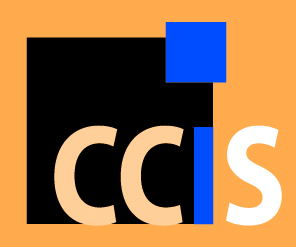Call for papers
SummerSoC is a well-established summer school and symposium focusing on service-oriented computing. The area of service-oriented computing is interpreted quite broadly, i.e. areas of interest for SummerSoC include cloud computing, microservice architecture, service orchestrations, service meshes, blockchains, Internet of Things, theoretical foundations of these subjects, and applications in/of all these areas, especially applications dealing with big/smart data and data sciences. Also, cross-domain subjects like eScience, digital humanities, or quantum computing are considered.
At SummerSoC, renowned researchers and leading industry practitioners give tutorials and invited talks on current topics from the areas above. PhD students present posters of their ongoing work and give plenary presentations of their theses. The agenda ensures that enough time is allocated for a lot of discussions. Participants come from both, academia as well as industry, and from all over the world.
SummerSoC is also a forum for presenting and discussing research from the areas above. Interested researchers submit papers that are peer-reviewed. Authors of accepted papers are expected to attend SummerSoC 2025, present their paper in the plenum as well as in the poster session.
Accepted papers will be published in the Springer proceedings series CCIS „Communications in Computer and Information Science”.
SummerSoC will also grant the „Young Researcher Award — VISOR on TALEN“ that is associated with 500€ for the awardee, sponsored by D-Visor. Potential awardees must be first author of a paper accepted for SummerSoC 2025.
Developing services for the cloud
Quantum Computing
Advanced types of applications
Big/smart Data and Data Science
Business processes in the cloud
Applications of services
Submission instructions
Authors should submit original research, overview papers, vision papers or industrial papers.
We will accept full and short papers, as well as posters for work in process research.
Also PhD Students are invited to present and discuss their current PhD research in the poster session.
Authors of accepted papers are expected to present their paper:
(i) at the paper presentation and
(ii) as poster at the poster session
at SummerSOC.
Paper Submission
Submitted full papers should not exceed 20 pages in Springer CCIS format.
Submitted short papers should not exceed 9 pages in Springer CCIS format.
Submission to: Easychair
Poster Submission
The expected submission is an extended abstract (more details at Poster Session)
The abstract description should not exceed 2 pages in Springer CCIS format.
Submission to: Easychair

Authors should consult Springer’s authors’ guidelines and use their proceedings templates, either for LaTeX or for Word, for the preparation of their papers. Springer encourages authors to include their ORCIDs in their papers. In addition, the corresponding author of each paper, acting on behalf of all of the authors of that paper, must complete and sign the Consent-to-Publish form. The corresponding author signing the copyright form should match the corresponding author marked on the paper. Once the files have been sent to Springer, changes relating to the authorship of the papers cannot be made.
We would like to draw the attention of authors of conference papers to the Springers Code of Conduct, as accepted papers must adhere to these specific guidelines.
Program Committee
The 17th Symposium and Summer School in Service-Oriented Computing is directed by leading experts, faculty at well-known universities, and industrial R&D leaders in the field of Service-Oriented Computing (SOC). All of them have been involved in previous efforts to establish Services Science as a fundamental paradigm for computing and software architecture.
